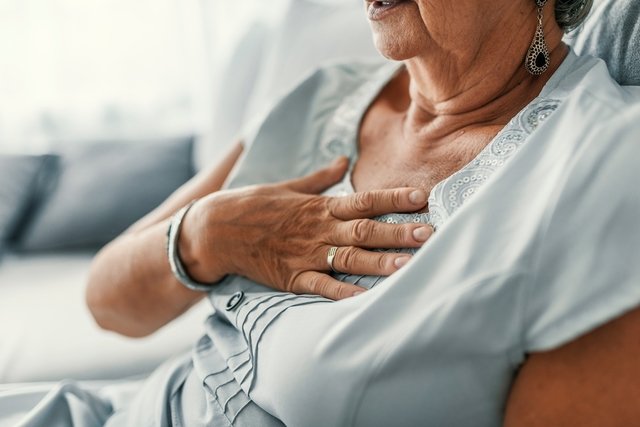Dyspepsia is a situation in which a person presents signs and symptoms of poor digestion, such as pain in the upper part of the abdomen, belching, nausea and a feeling of general malaise, which can directly interfere with the person’s quality of life.
Most of the time, dyspepsia is related to the presence of bacteria Helicobacter pylori in the stomach, but it can also happen due to bad eating habits, intestinal infections or emotional changes, such as stress and anxiety, for example.
It is important that the cause of dyspepsia is identified by the general practitioner or gastroenterologist so that the most appropriate treatment can be indicated, which may include changes in daily diet or the use of medication to alleviate symptoms, and improvement can also be recommended. in lifestyle habits, such as stopping smoking, avoiding alcoholic beverages and the consumption of fatty and highly seasoned foods, for example.

Dyspepsia symptoms
The main symptoms of dyspepsia are:
- Pain or discomfort in the upper part of the abdomen;
- Burning sensation in the stomach;
- Nausea;
- Constant burping;
- Feeling of early satiety;
- Abdominal swelling.
If symptoms of dyspepsia are frequent, it is important that the person consults a gastroenterologist so that the symptoms presented can be assessed and tests can be carried out to identify the cause, such as upper digestive endoscopy, for example. Therefore, by identifying the cause of dyspepsia, the most appropriate treatment may be indicated.
Possible causes
Dyspepsia occurs when there are changes in the sensitivity of the stomach mucosa, which most often happens due to the presence of bacteria Helicobacter pylori (H. pylori), gastroesophageal reflux, intestinal infections or the use of some medications, especially the use of non-steroidal anti-inflammatory drugs.
Furthermore, some factors can favor dyspepsia, such as poor eating habits, physical inactivity, obesity, alcohol consumption and emotional changes, such as stress and anxiety, for example, in which case it is known as dysfunctional dyspepsia.
How the treatment is carried out
Treatment for dyspepsia must be indicated by a gastroenterologist or general practitioner and aims to alleviate symptoms and promote the person’s quality of life. Therefore, the recommended treatment may vary according to the cause of dyspepsia, and may be indicated by the doctor:
1. Dyspepsia remedies
To alleviate the symptoms of dyspepsia, the doctor may recommend the use of analgesics, to relieve stomach pain, as well as medications that inhibit acid production, used to treat peptic ulcers, such as Omeprazole or Esomeprazole, for example, or medications called prokinetics. , which help empty stomach contents.
If a person has an infection through H. pylorithe use of antibiotics may be recommended by your doctor.
2. Natural treatment
The natural treatment for dyspepsia aims to avoid factors that can trigger symptoms related to dyspepsia, such as cigarettes, alcohol and coffee, in addition to having a healthy and balanced diet.
Furthermore, it is important to control body weight, exercise and reduce stress and anxiety levels by carrying out activities that help you relax, such as meditation, yoga or aromatherapy, for example.
Another way to alleviate symptoms is to use a warm water bottle and apply it to the belly during the most painful attacks. Check out some home remedy options for poor digestion.
3. Diet for dyspepsia
The diet for dyspepsia involves eliminating foods that the patient appears intolerant to and, to know which foods they are, one must record their sensations after controlled food intake in order to identify which foods may be less tolerated by the mucosa, causing symptoms of pain, swollen belly or diarrhea.
In general, foods that should be avoided are seasonings, fatty foods, fried foods, carbonated drinks, cocoa or chocolate, as well as foods that cause gas, such as beans, Brussels sprouts, broccoli, cauliflower or onions, for example. .
It is important that meals are eaten at regular times and in a pleasant environment, and that chewing is done properly and slowly. Furthermore, it is recommended that meals be in small quantities, which helps to improve food digestion. If the person experiences acidity or burning sensation, it is recommended not to lie down after eating.
Read too: 14 foods that help with digestion (and 5 that hinder it)

Sign up for our newsletter and stay up to date with exclusive news
that can transform your routine!
Warning: Undefined array key "title" in /home/storelat/public_html/wp-content/plugins/link-whisper-premium/templates/frontend/related-posts.php on line 12
Warning: Undefined array key "title_tag" in /home/storelat/public_html/wp-content/plugins/link-whisper-premium/templates/frontend/related-posts.php on line 13



